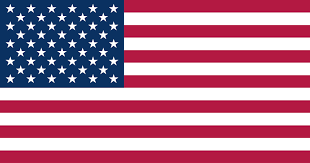Circumcision
More About Circumcisions
St Rose Pediatrics has performed over 35,000 circumcisions since 1995
Is circumcision right for your baby boy? You may be thinking about having him circumcised.
St Rose Pediatric performs circumcision procedures for newborn babies one-month-old and younger at their office locations in Henderson and Las Vegas, Nevada.
Circumcision, the surgical removal of the foreskin, presents both potential benefits and risks. Pros include reduced risk of urinary tract infections (UTIs), penile cancer, and certain sexually transmitted infections (STIs) like HIV, while cons include pain, bleeding, infection, and potential complications from the surgery itself, as well as the possibility of future regret.
Pros of Circumcision:
- Minimizing Discomfort: In order to minimize discomfort during and after the procedure, our providers use both topical and local anesthetic.
- Reduced Risk of UTIs: Circumcision may decrease the risk of UTIs, especially in infancy.
- Reduced Risk of Penile Cancer: Circumcision is associated with a lower lifetime risk of penile cancer.
- Reduced Risk of STIs: Circumcision can lower the risk of acquiring certain STIs, including HIV, and potentially other STIs.
- Easier Hygiene: Some find it easier to maintain good genital hygiene with a circumcised penis.
- Treatment of Penile Disorders: Circumcision can be beneficial in treating specific penile disorders such as balanoposthitis, paraphimosis, and phimosis.
- Bleeding and Infection: Bleeding and infection are potential risks of any surgery, including circumcision.
- Potential Complications: Rare complications can occur, such as cutting the foreskin too long or too short.
- No Universal Recommendation: The American Academy of Pediatrics (AAP) states that the medical benefits of circumcision outweigh the risks, but it does not recommend universal circumcision.
Circumcision: Where We Stand
The American Academy of Pediatrics believes that circumcision has potential medical benefits and advantages, as well as risks.
Current evidence suggests that the health benefits of newborn male circumcision outweigh the risks and that the procedure's benefits justify access to this procedure for families who choose it. However, existing scientific evidence is not sufficient to recommend routine circumcision.
Therefore, because the procedure is not essential to a child's current well-being, we recommend that the decision to circumcise is one best made by parents in consultation with their pediatrician. Their decision should take into account what is in the best interests of the child, including medical, religious, cultural, and ethnic traditions.
Your pediatrician will discuss the benefits and risks of circumcision with you and the forms of analgesia that are available.
More Information
- Should the Baby be Circumcised?
- Caring For Your Son's Penis
- Circumcision (AAP Policy Statement)
Last Updated
2/12/2024
Source
Adapted from Caring for Your Baby and Young Child: Birth to Age Five 7th edition (Copyright © 2019 American Academy of Pediatrics)

